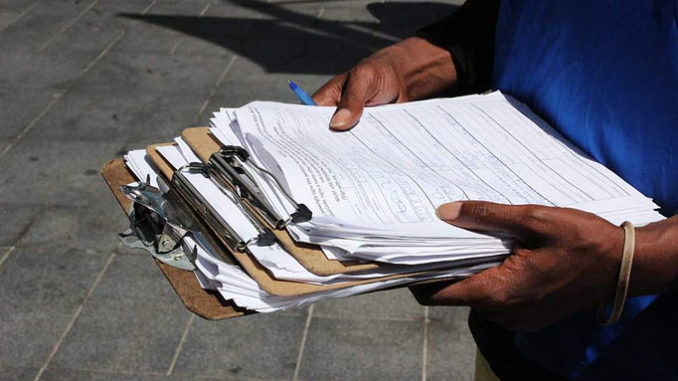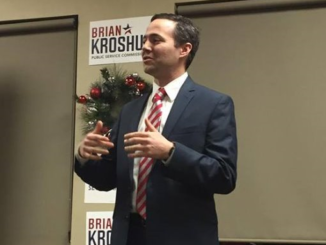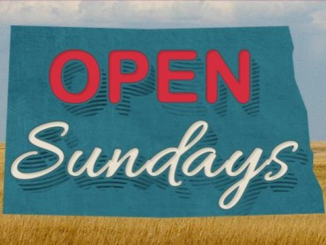
In June of last year, we published an article questioning whether ballot measures are in jeopardy? The question came as a result of last legislative session’s Senate Bill 2135. This bill authorized an “Initiated and Referred Measure Study Commission”, to meet during the interim, for the purpose of “a comprehensive study of the initiated and referred measure laws of North Dakota.”
Perhaps the main driver behind creating the interim commission was the voter’s approval of Medical Marijuana (Measure 5) in the 2016 general election. While the measure passed with nearly 64% of the vote, it failed to include decriminalization. The 2017 Legislature then modified it and the legislation has yet to be fully implemented.
The commission has now met four times over the course of the interim. The last meeting was just two days ago and according to the Legislative Branch web page there are now fifteen bill proposals that are being put forward as a result of the meetings.
The proposals are as follows:
- Changes language in the Century Code requiring the Secretary of State to file a statement of the estimated fiscal impact of a measure.
- Adds referred measures to a section of the Century Code regarding fiscal impact.
- Removes a reporting requirement from the Century Code for out-of-state contributors.
- Adds language to the Century Code requiring the Attorney General to approve petitions in addition to the Secretary of State.
- Adds language to the Century Code limiting petition titles to 100 words or less.
- Adds and changes language in the Century Code to establish mediation procedures for settling disputes over whether petition titles are a fair representation of the proposed measure.
- Removes the requirement from the State Constitution that petition circulators be “electors”.
- Adds language to the State Constitution requiring that initiated measures for constitutional amendments be voted on at the next general election.
- Adds and changes language to the State Constitution requiring that proposals for initiated measures be submitted to a member of the legislative assembly. The legislator then submits the proposal to Legislative Council to prepare the bill or resolution. The measure is then submitted to the Secretary of State for approval to circulate petitions. Challenges and review procedures for disagreements with the Secretary of State are set. Once an initiated measure is found to have sufficient signatures; it is submitted to the legislative assembly, assigned to a committee for a public hearing, and then must be voted on by “at least one house of the legislative assembly”. If the bill doesn’t pass or is vetoed by the governor, then the measure is placed on the ballot in the next general election.
- Adds the requirement to the State Constitution that initiated and referred measures be presented to the Attorney General in addition to the Secretary of State.
- Adds the requirement to the State Constitution that measures only appear on a general election ballot.
- Adds language to the State Constitution requiring that measures be drafted by Legislative Council.
- Adds language to the State Constitution requiring that measures, with an economic impact of greater than 1% of the General Fund, be approved by the legislature and governor.
- Changes the word “shall” in the State Constitution to “must” for the 120 day filing requirement before an election and adds language to require that measures only appear on a general election ballot.
- Changes the requirement in the State Constitution from submitting an initiative petition from 120 days before an election to 90 days.
As you can see, the ninth bill proposal is the most extensive. The idea for this bill comes from Rep. Scott Louser (R – District 5). As we predicted back in October, Louser’s bill seems to be gaining the most attention. He defended it for an hour on Tuesday.
As summarized by the AP article, Rep. Louser’s proposal would:
“… require citizen-backed measures to go to the legislature for a vote before they come to voters. If lawmakers — or the governor — rejected the measure it still would go before voters in the next general election.”
There are two key arguments I’ve heard in regards to this bill– one for and one against:
- The argument in favor is that the legislature would have the opportunity to flesh out the pros and cons of a measure – without amending it – through committees, debate, etc. Then they’d give it an up or down vote. Thereby avoiding the problems experienced by legislation like the Medical Marijuana bill.
- The opposing argument is that the bill gives the legislature too much of an opportunity to stifle the momentum of the petitioners by dragging out the process longer than necessary. Remember, a measure couldn’t go to a ballot until it went before the legislature– who only meet every two years.
To be fair, both of these positions have validity to them.
But here’s why some folks have a problem with Rep. Louser’s bill– why make people go through the petitioning process in order to get a bill before the legislature if that’s where it’s going to end up anyhow? Why shouldn’t a legislator just step up to the plate, submit the idea to Legislative Council, and propose the legislation? Wouldn’t it save supporters of the idea (i.e. citizens) a lot of time? Besides, shouldn’t legislators entertain ideas for legislation from constituents in the first place?
On the surface, this is a fair point. And many legislators do propose legislation on behalf of constituents already. But a typical piece of legislation is subject to the amendment process. Those who propose ballot measures don’t want the legislature tinkering with the language and intent of their ideas.
So, what’s the answer? Is there a way everyone can be happy? Maybe not, but I believe we can get pretty close. I wrote about the answer exactly one year ago today. The idea came from the North Dakota Watchdog Network’s Dustin Gawrylow. And interestingly enough, it’s found in the 12th proposal above– which is to have Legislative Council draft the measures for sponsoring committees.
What does this accomplish? It appeases the Legislature by them not having to worry about problems like those experienced with the Medical Marijuana bill. And for supporters of ballot measures, it doesn’t hold up the process by having to wait upon the legislature every two years to send it through committee, debate it, and then vote on it.
As I said a year ago today, love them or hate them, ballot measures aren’t going anywhere. So, why not make them the best that they can be?
Sources:
- https://theminutemanblog.com/2017/06/12/are-ballot-measures-in-jeopardy/
- http://www.legis.nd.gov/assembly/65-2017/bill-index/bi2135.html
- https://www.leafly.com/news/politics/north-dakotas-medical-marijuana-vote-sparks-panic-over-initiatives
- https://ballotpedia.org/North_Dakota_Medical_Marijuana_Legalization,_Initiated_Statutory_Measure_5_(2016)
- http://www.legis.nd.gov/assembly/65-2017/committees/interim/initiated-and-referred-measures-study-commission
- http://www.legis.nd.gov/assembly/65-2017/interim/19-0055-01000.pdf
- http://www.legis.nd.gov/assembly/65-2017/interim/19-0058-01000.pdf
- http://www.legis.nd.gov/assembly/65-2017/interim/19-0059-01000.pdf
- http://www.legis.nd.gov/assembly/65-2017/interim/19-0085-01000.pdf
- http://www.legis.nd.gov/assembly/65-2017/interim/19-0100-01000.pdf
- http://www.legis.nd.gov/assembly/65-2017/interim/19-0101-01000.pdf
- http://www.legis.nd.gov/assembly/65-2017/interim/19-3008-01000.pdf
- http://www.legis.nd.gov/assembly/65-2017/interim/19-3018-01000.pdf
- http://www.legis.nd.gov/assembly/65-2017/interim/19-3019-01000.pdf
- http://www.legis.nd.gov/assembly/65-2017/interim/19-3020-01000.pdf
- http://www.legis.nd.gov/assembly/65-2017/interim/19-3021-01000.pdf
- http://www.legis.nd.gov/assembly/65-2017/interim/19-3022-01000.pdf
- http://www.legis.nd.gov/assembly/65-2017/interim/19-3023-01000.pdf
- http://www.legis.nd.gov/assembly/65-2017/interim/19-3024-01000.pdf
- http://www.legis.nd.gov/assembly/65-2017/interim/19-3031-01000.pdf
- https://theminutemanblog.com/2017/10/24/ending-initiated-measures-commission-member-suggests-it-be-discussed/
- http://www.kfyrtv.com/content/news/Committee-looks-at-changing-initiated-measures-in-North-Dakota-477452063.html
- https://theminutemanblog.com/2017/03/22/initiated-measures-dustin-gawrylows-brilliant-idea/





